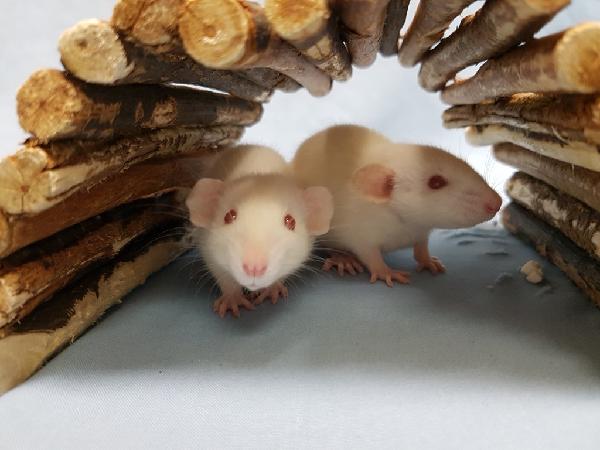The BC SPCA is opposed to the permanent confinement of wild and exotic animals unless it can be demonstrated that the Five Freedoms can be met in the captive environment. While individuals and organizations should ultimately phase out collections of these animals, in the interim, they must strive to meet the Five Freedoms at all life stages, both on and off exhibit, by employing management practices and species-specific enclosures that meet the physiological, emotional and behavioural needs of the animals.
Approved by the Board of Directors – October 2014
(replaces previous version, October 2004)
Background
A variety of individuals and organizations keep wild and exotic animals in permanent captivity, such as zoos, aquariums, wildlife rehabilitation facilities, research institutions, sanctuaries, businesses, private collectors and falconers. However, full provision of the Five Freedoms is not possible for most wild and exotic animals, whether wild-caught, captive-bred or rescued and deemed non-releasable, due to their complex social, physiological and behavioural needs. Existing evidence suggests, for instance, that the welfare of captive animals with large home ranges (e.g., bears, felids, elephants) and high cognitive abilities (e.g., great apes, cetaceans) is severely compromised. Thus, where the Five Freedoms are unattainable, these animals should not be kept in permanent captivity. (See the Marine Mammal Welfare position statement for a more specific discussion of marine mammals in captivity.)
Accreditation by industry or membership associations and/or possession of government permits for restricted animals are often a means of distinguishing between roadside attractions and more legitimate facilities; however, this is no guarantee that the welfare of the animals in captivity is adequate.
Frequently, conservation, education and research are cited as justification for keeping wild and exotic animals in permanent captivity. Human activities intentionally and unintentionally impact free-living wildlife across the globe. The BC SPCA therefore believes that we must strive to protect species through conservation and preservation practices. While conservation is a commonly espoused mandate among zoos and aquariums, breeding wild animals in captivity for eventual release to augment species populations (ex situ conservation) is dependent upon highly sophisticated recovery strategies that can, at times, jeopardize the welfare of the individual involved. Thus, in addition to preserving and restoring habitats to support reintroduced populations, such programs should ensure a balance of good welfare of the reintroduced animals with the intended conservation purpose. Where an organization has a mandate of conservation, the BC SPCA believes that it should provide significant support, either financial or personnel, to legitimate in situ (in the field) conservation programs with a history of demonstrated success.
Given the considerable impact humans have on free-living wildlife, the BC SPCA recognizes the importance of communicating to the public the issue of biodiversity decline. Although many zoos and aquariums claim to educate visitors about environmental and animal issues, the Society believes that observing wild animals outside of their natural habitat provides little educational benefit. At present, there is scant evidence to suggest that visitors retain the information long-term and, more importantly, that visitors are compelled to change their behaviour in light of what they have learned (e.g., to donate to conservation causes). Instead, the BC SPCA supports the viewing of wild animals in their natural habitat under safe, controlled conditions. Such experiences, particularly when guided by a skilled environmental educator, can aid the public in developing a better understanding and appreciation of the wildlife where they live. When viewing animals in the wild, care should be taken to minimize habitat disturbance, as well as direct interference with the animals’ natural behaviour.
As biodiversity is lost at an accelerating pace, the BC SPCA acknowledges the potential significance of research on captive wild animals to inform field conservation projects. However, much of the research currently conducted by zoos and aquariums is focused on animal husbandry rather than conservation of animals in the wild. While the BC SPCA recognizes that such research can improve the welfare of captive wild animals, non-invasive and non-lethal research that directly benefits the species as a whole is preferable. Therefore, the conservation value and scientific necessity of proposed research projects should be determined on a case-by-case basis.
Background Updated – October 2014
Definitions
Five Freedoms: A concept first developed in 1965 by The Brambell Committee, formed by the UK government to examine the conditions on commercial farms. Now internationally recognized, the Five Freedoms are considered applicable to all animals.
The BC SPCA’s Five Freedoms (adapted from the original list) are:
- Freedom from hunger and thirst;
- Freedom from pain, injury and disease;
- Freedom from distress;
- Freedom from discomfort;
- Freedom to express behaviours that promote well-being.
The BC SPCA’s Five Freedoms form the basis of the Society’s Charter and describe conditions that must be fulfilled in order to prevent the suffering of all animals in human care. The Society acknowledges that these freedoms are not enforceable and that absolute provision of these freedoms may not be possible, but strongly encourages all animal guardians to strive to provide them.
Exotic animals: Species that are non-domesticated, non-indigenous wild animals, whether captured from the wild or captive-bred.
Wild animals: Species that have not been domesticated. Wild animals have evolved in complex ecosystems resulting in mutual interdependencies with other animals and the surrounding environment. Wild animals may be exotic or indigenous, and wild-born or captive-bred.





